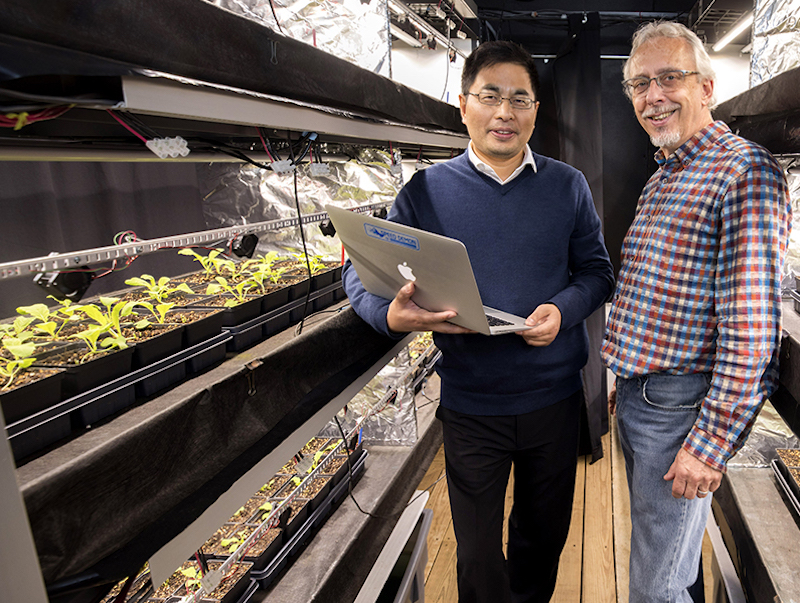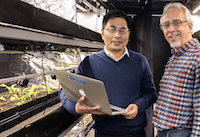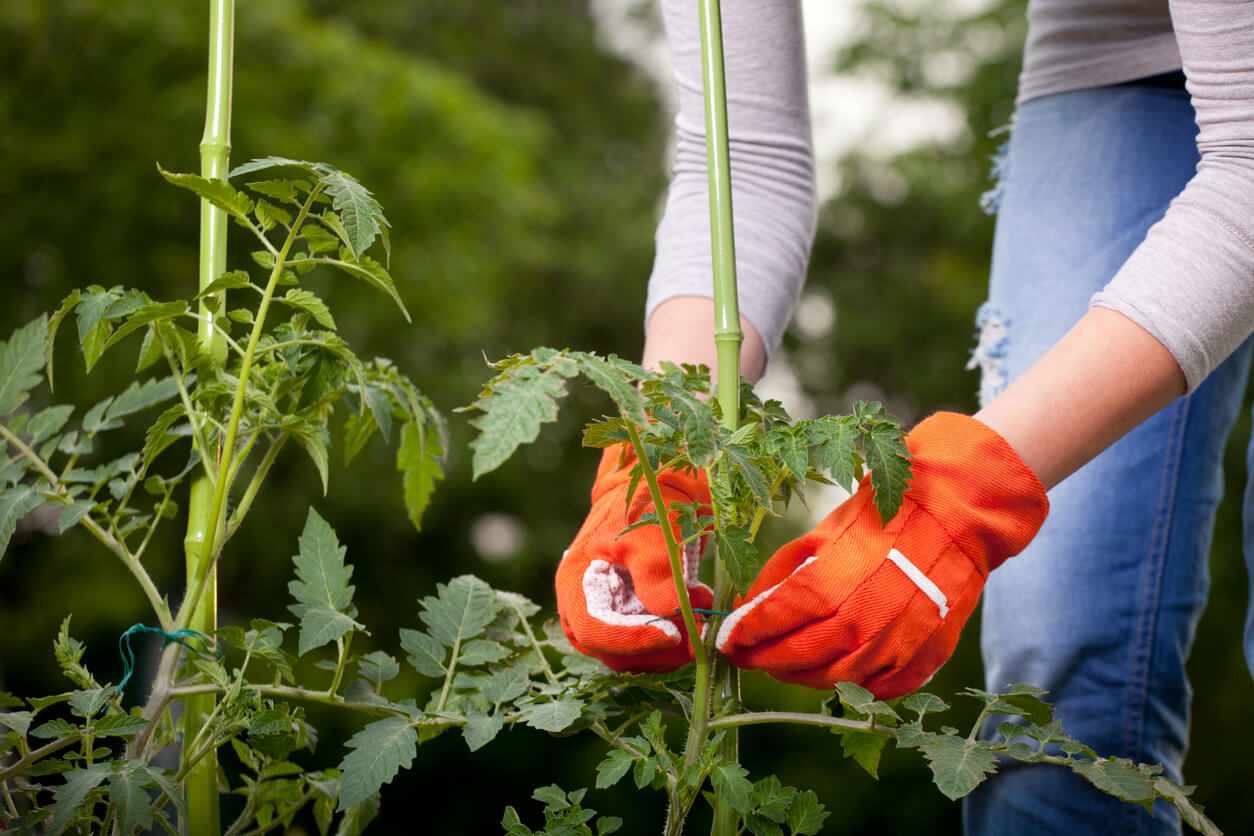It might not seem like engineering and horticulture have much in common, but engineer WenZhan Song and horticulturist Marc Van Iersel are finding new ways to intertwine their respective fields thanks to the President's Interdisciplinary Seed Grant Program at the University of Georgia.
Song and Van Iersel’s project, called “Smart cyber-physical systems for controlled-environment agriculture,” lies at the intersection of food security, energy efficiency and environmental sustainability, and includes faculty in the College of Agricultural and Environmental Sciences (CAES), College of Engineering, Franklin College of Arts and Sciences, and Terry College of Business.
“When the call for interdisciplinary seed grants came out, it was a perfect fit for this group, so we decided to apply. Getting the grant allowed us to formalize our collaboration and really start doing joint research,” said Van Iersel, a professor of horticulture at CAES. “The hope of the joint work is that we can tackle the issue of energy efficiency in controlled-environment agriculture by integrating our respective knowledge in horticulture, engineering, energy informatics and computer science.”
The grant allowed the researchers to purchase and install sensors within a greenhouse to collect environmental and crop-health data. The findings could have implications for improving food safety and for growing plants in space, as part of disaster relief efforts and for military applications. The team subsequently received a grant from the U.S. Department of Agriculture for $5 million over four years and has a pending proposal with the NSF to continue this line of research.
“Sometimes you have different languages, and sometimes you have different interests, but it’s about everyone stepping forward to find common ground,” said Song, Georgia Power Mickey A. Brown Professor in Engineering in the College of Engineering.
The 11 other faculty teams that received the President's Interdisciplinary Seed Grant awards last year are also working to find common ground and expand their research. Their projects were selected from more than 150 research proposals.
The university’s investment of $1.37 million in the program has generated $12.9 million in awarded grants, with the potential for more in the future.
“A primary goal of the president’s seed grant program was to help teams demonstrate a history of working together to develop preliminary data that would make them competitive for major external grants,” said David Lee, UGA’s vice president for research. “A return on investment of nearly 10-to-1 is thrilling.”
The Interdisciplinary Seed Grant Program represents a strategic investment by the University of Georgia in its faculty and research enterprise.
“I am pleased that the Interdisciplinary Seed Grant Program has achieved such impressive results in the short time since it was established,” said President Jere W. Morehead. “The success of this initiative demonstrates the value of supporting trailblazing research that combines the strengths of UGA faculty members across campus.”
Interdisciplinary Seed Grant proposals were reviewed by a team of UGA faculty and administrators assembled by Lee and Jennifer Frum, UGA’s vice president for public service and outreach. The review team selected winning proposals based on demonstrated potential to address grand challenges and to generate new external funding in the future. Among other criteria, the review team also considered the inclusion of public service and outreach components.
“All of Georgia benefits from a secure food supply and energy efficiency,” Frum said. “This project exemplifies the positive impact that Georgia’s land-grant and sea-grant institution can have on the state.”
More information about the collaborative projects being pursued by researchers at CAES can be found at research.caes.uga.edu.
Additional principal investigators and topics of the winning proposals include:
- Marin Brewer, associate professor of mycology at CAES, “Investigating microbial resistance to antifungal treatments used for plants and people”;
- Clark Alexander, director of the Skidaway Institute of Oceanography and professor of marine sciences in the Franklin College of Arts and Sciences, “Studying the UGA Marine Science campus on Skidaway Island as a model for achieving coastal resiliency in the face of extreme weather”;
- John Drake, Distinguished Research Professor and associate dean for academic affairs in the Odum School of Ecology, “Mapping the global risk of emerging infectious disease threats”;
- Changying “Charlie” Li, professor of electrical and computer engineering in the College of Engineering, “Using robotic systems to accelerate the application of genome information in the improvement of food crops”;
- Rebecca Matthew, assistant professor in the School of Social Work, “Building a network of cultural liaisons to improve the health and well-being of Athens-area Latinos”;
- Amanda Murdie, Dean Rusk Scholar of International Relations and professor of international affairs in the School of Public and International Affairs, “Forecasting the threat of cyber attacks, nation by nation”;
- Li Tan, assistant research scientist in the Complex Carbohydrate Research Center, “Developing sustainable materials for biomedical and environmental applications from waste plant biomass”; and
- David Tanner, associate director of state services and decision support in the Carl Vinson Institute of Government, “Enlisting the help of businesses in the expansion of America’s STEM workforce.”








